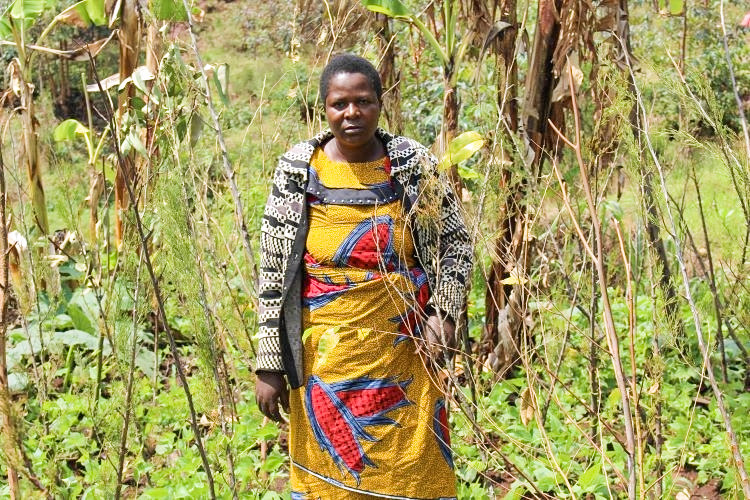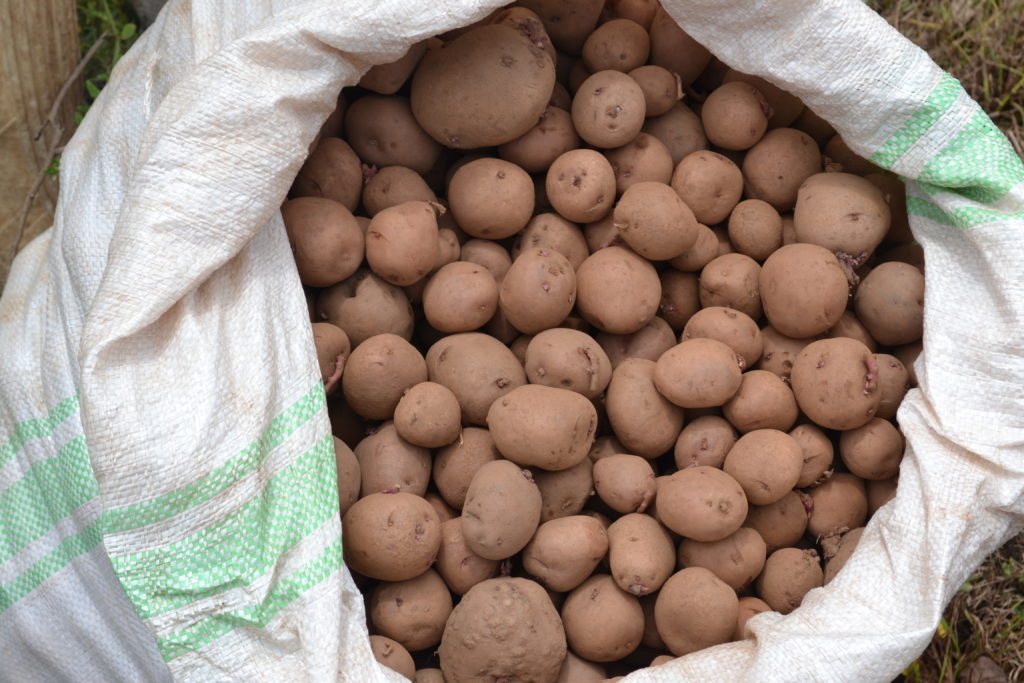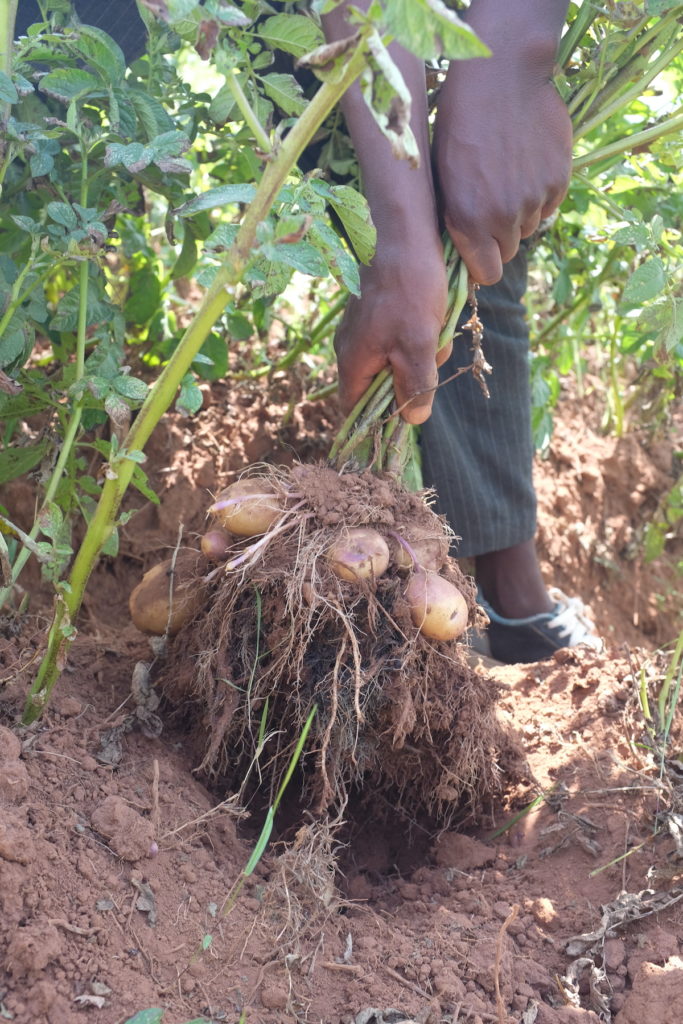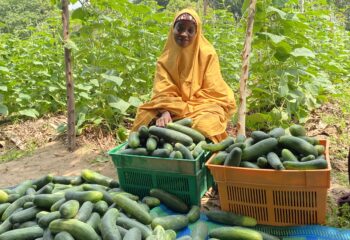
Jacqueline Ndayiziga, a 37-year-old potato farmer from Mwaro Province in Burundi, once struggled with her farming. Despite her best efforts, her traditional methods and use of local seeds had yielded poor results. She had grappled with low production and disease susceptibility in her crops, impacting both her family’s food security and her income.
For years, Jacqueline had relied on seeds kept from previous harvests for her planting. However, these seeds had not performed well, and diseases had often stunted her crops during critical growth phases. Her results had been consistently disappointing, with yields too small to support her family’s needs, even after applying organic manure and following other basic farming techniques.
“Before, I struggled to feed my family with the poor harvests I got from traditional seeds. But now, thanks to the support of Jeanne and the PSSD project, I am producing more, and my family’s living conditions have improved greatly. I’m committed to this journey and helping others do the same.”
Jacqueline Ndayiziga

However, in 2022, Jacqueline planted on two plots: one using her own reserved seeds, and the other using Ndinamagara seeds – a variety of high-quality seeds provided by local seed entrepreneur Jeanne Nkurunziza through the support of IFDC’s Private Seed Sector Development (PSSD) project, which co-financed the production and promotion of quality seeds with Jeanne. Even though Jacqueline applied the same inputs, including organic manure and lime, and followed the same farming practices for both plots, the results were vastly different. While her seed plot yielded a mere 22 kg of potatoes, the plot planted with new, high-quality seed produced an impressive 125 kg.
This result marked a turning point for Jacqueline.
Jeanne then set up a demonstration field, where Jacqueline and her neighbors received hands-on training throughout the growing season. The training covered all key farming stages: planting, weeding, flowering, and harvesting. With this support, Jacqueline and other local farmers gained exposure to the added benefits of using quality seeds alongside good agricultural practices and fertilizers.
Recognizing the potential of the new methods and seeds but constrained by finances, Jacqueline then approached Jeanne for credit. Jeanne provided 100 kg of Ndinamagara potato seed, allowing Jacqueline to expand her operation. She applied the knowledge she had gained from the training sessions and used fertilizers, organic manure, and improved farming techniques.

The results were transformative. Jacqueline harvested one ton of potatoes from the 100 kg of seed – a significant improvement over previous seasons. Her success did not go unnoticed in her community. Jacqueline’s neighbors, curious about her newfound productivity, sought her advice.
She connected two farmers, Audace Niyonkuru and Evelyne Nimpaye, with Jeanne, and they too adopted the high-quality Ndinamagara seeds and best practices, leading to success on their farms as well. Audace even used the proceeds from his bumper crop to build a house, while Evelyne reported that her family’s food security significantly improved.
Jacqueline’s experience with quality seeds has had a lasting impact on her own life as well as her community. Her increased production enabled her to buy a cow, providing her family with milk and organic manure to continue enriching her soil.
The improved farming practices, combined with the use of fertilizers and dolomite, have empowered her to farm intensively, providing a stable livelihood for her family. Additionally, by sharing her knowledge with neighbors, she has become a catalyst for change, encouraging others to adopt quality seeds and improved farming techniques.
Jacqueline proudly remarked, “Before, I struggled to feed my family with the poor harvests I got from traditional seeds. But now, thanks to the support of Jeanne and the PSSD project, I am producing more, and my family’s living conditions have improved greatly. I’m committed to this journey and helping others do the same.”
The broader impact of IFDC’s intervention through the PSSD project is evident in the growing community of farmers in Mwaro Province, who are embracing quality seeds and sustainable farming practices, resulting in increased yields and improved livelihoods.
The Private Seed Sector Development (PSSD) project (2018-2026), funded by the Dutch Ministry of Foreign Affairs and implemented by the International Fertilizer Development Center (IFDC), aims to increase the production and incomes of 178,000 farmer households in Burundi. The project works with private and public sector partners to promote the development of a private sector-led seed industry that is able to provide farmers with sustainable access to high-quality seed and agricultural advisory services.





